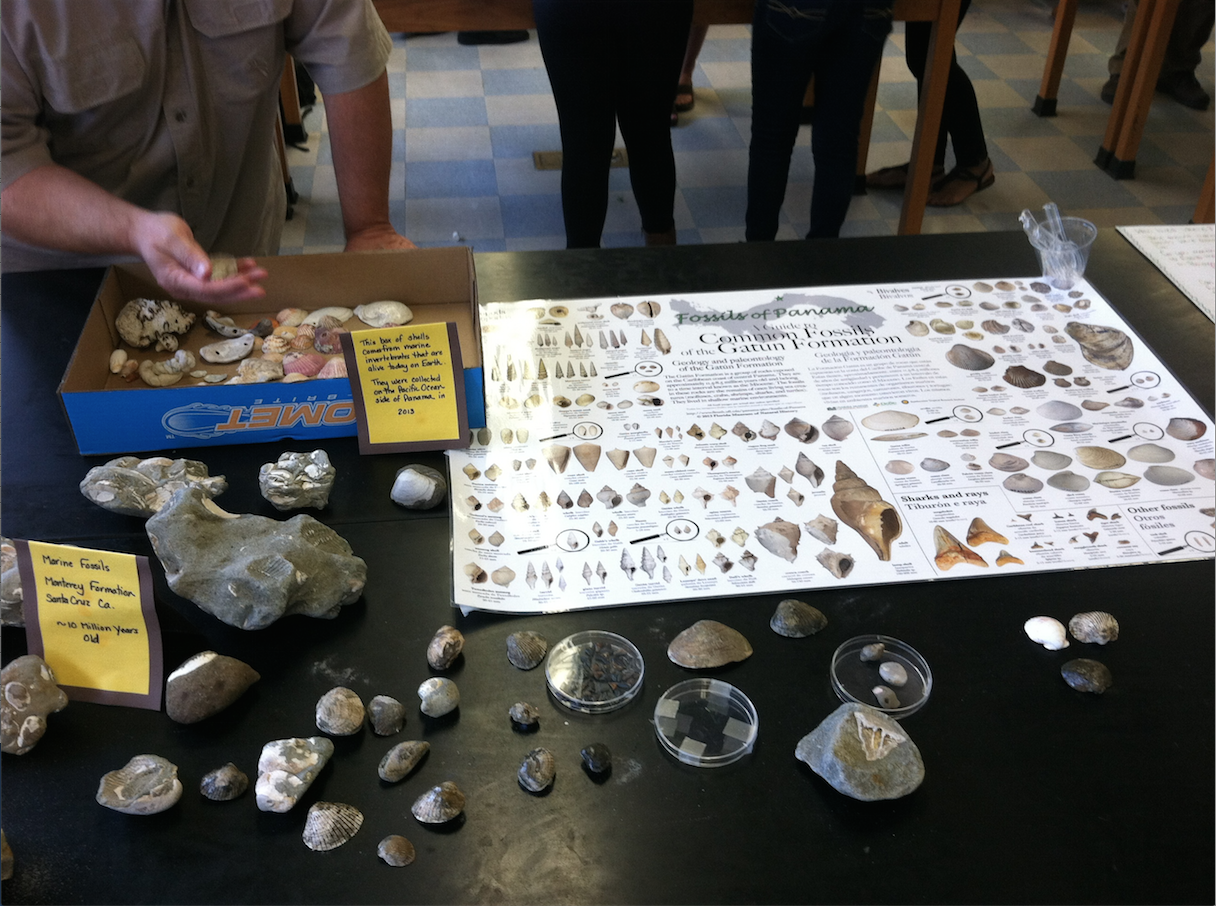Hands-On Learning: Fossils in the Classroom

A global “tree of life” will transform biological research in a broad range of disciplines from ecology to bioengineering. To help facilitate that transformation, the OpenTree project [1] now provides online access to >4000 published phylogenies, and a newly generated tree covering more than 2.5 million species.
The next step is to build tools to enable the community to use these resources. To meet this aim, OpenTree, Arbor [2] and NESCent’s HIP working groups [3] are staging a week-long hackathon September 15 to 19 at U. Michigan, Ann Arbor. Participants in this “Tree-for-all” will work in small teams to develop tools that use OpenTree’s web services to extract, annotate, or add data in ways useful to the community. Teams also may focus on testing, expanding and documenting the web services.
How could a global phylogeny be useful in your research or teaching? What other data from OpenTree would be valuable? How could OpenTree web services be integrated into familiar workflows and analysis tools? How could we add to the database of published trees, or enrich it with annotations?
If you can imagine using these resources, and you have the skills to work collaboratively to turn those ideas into products (as a coder, or working side-by-side with coders), we invite you to apply for the hackathon. The full call for participation (http://bit.ly/1ioPPMc) provides instructions for how to apply, and how to share your ideas with potential teammates (strongly encouraged prior to applying). Applications are due July 8th. Travel support is provided. Women and underrepresented minorities are especially encouraged to apply.
If you have questions, contact Karen Cranston (karen.cranston@nescent.org, @kcranstn, OpenTree), Arlin Stoltzfus (arlin@umd.edu, HIP), Julie Allen (juliema@illinois.edu, HIP), or Luke Harmon (lukeh@uidaho.edu, Arbor).
[1] http://www.opentreeoflife.org
[2] http://www.arborworkflows.com/
[3] http://www.evoio.org/wiki/HIP (Hackathons, Interoperability, Phylogenies)
by Deb Paul and Andrea Matsunaga for: Jason Best, Sylvia Orli, William Ulate, Miao Chen, and Reed Beaman
Recorded Webinar:Visualize Your Text Data Using OCR Output
00:00-15:23 Overview (Deb Paul)
15:24-29:13 Live DEMOs (Andrea Matsunaga and Jason Best)
29:14-55:57 Discussion
by Deborah Paul for Nelson E. Rios
If you need to georeference hundreds of thousands of localities for millions of specimens, how will you get it done? On May 1st, 2014, 88 people logged in to find out more about how to use CoGe, or Collaborative Georeferencing using a suite of tools developed at Tulane Biodiversity Institute.
Pam Soltis comments on Paris Museum of Natural History’s digitization efforts.
by Deb Paul @idbdeb, Kevin Love, and Matt Collins
While 27 students were lucky enough to get into this first-ever two-day Data Carpentry course, over 62 people were on the wait list! (And this doesn't include those who decided not to add themselves to that wait list). Why were they so eager to enroll?